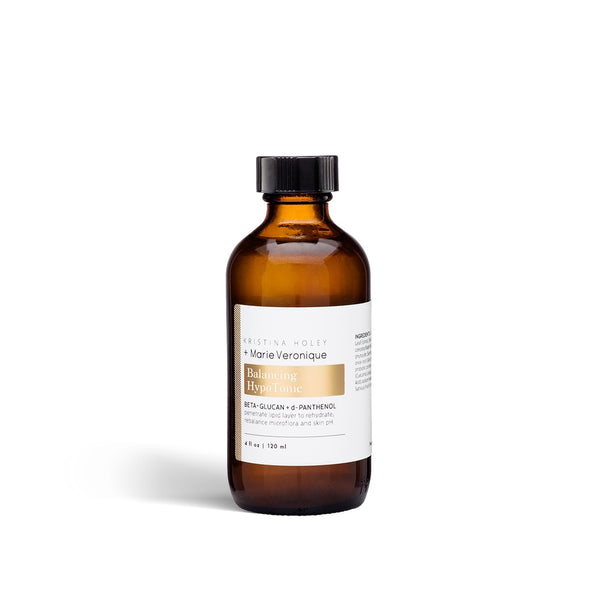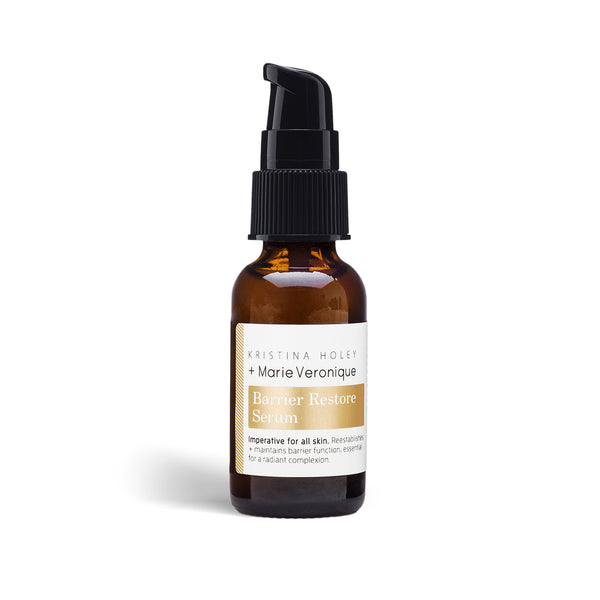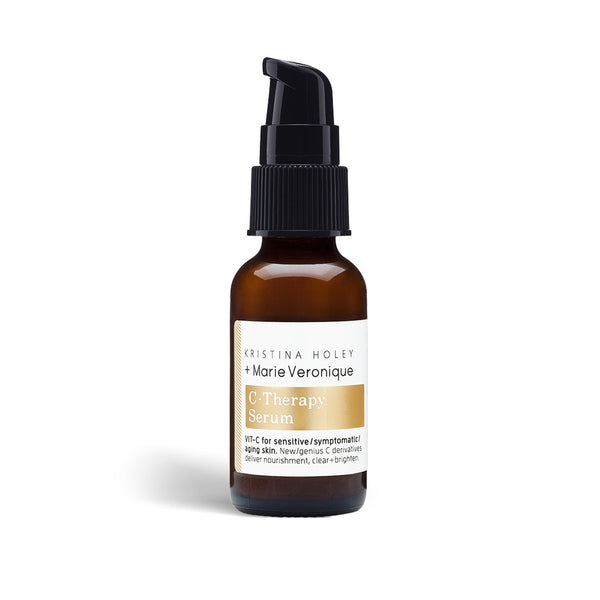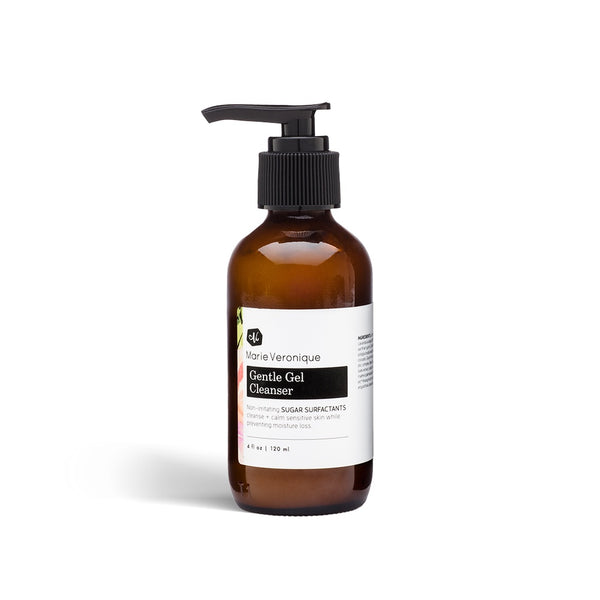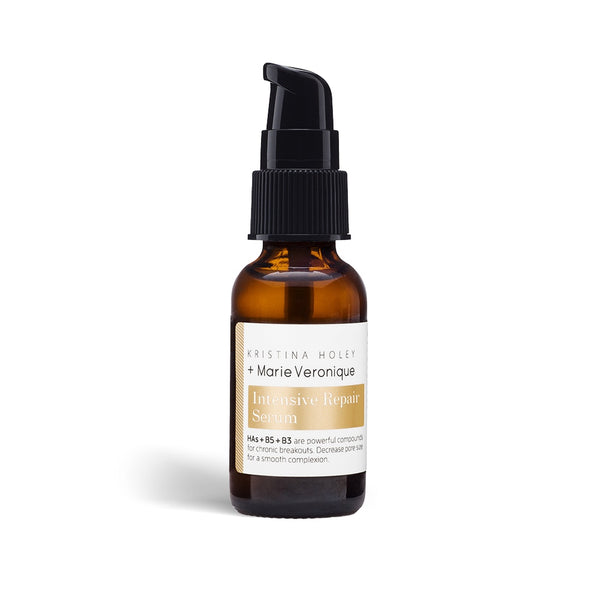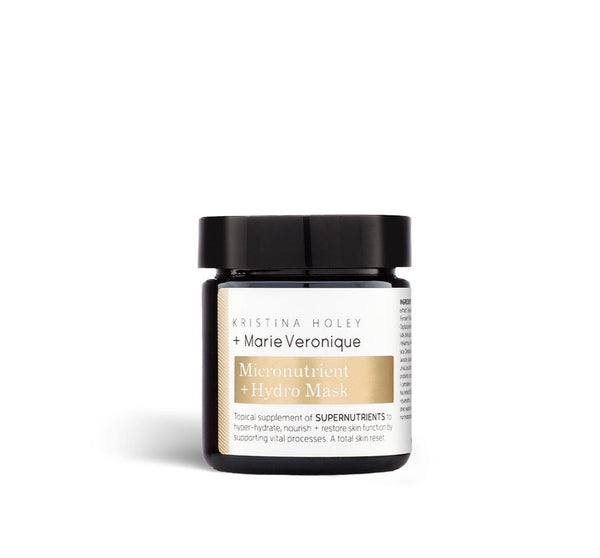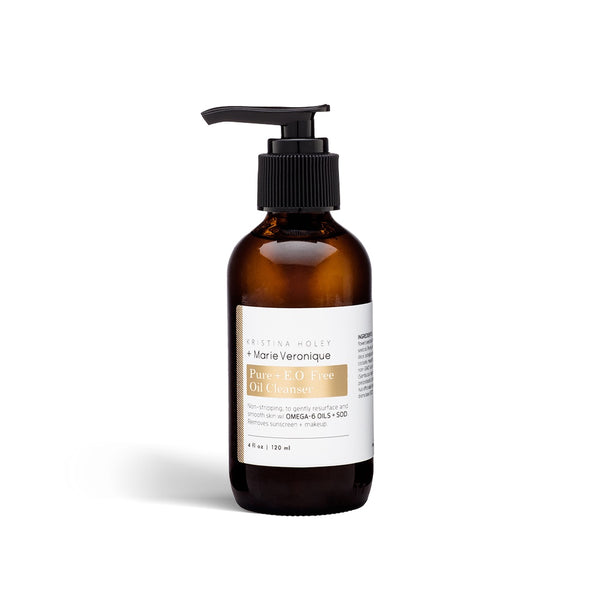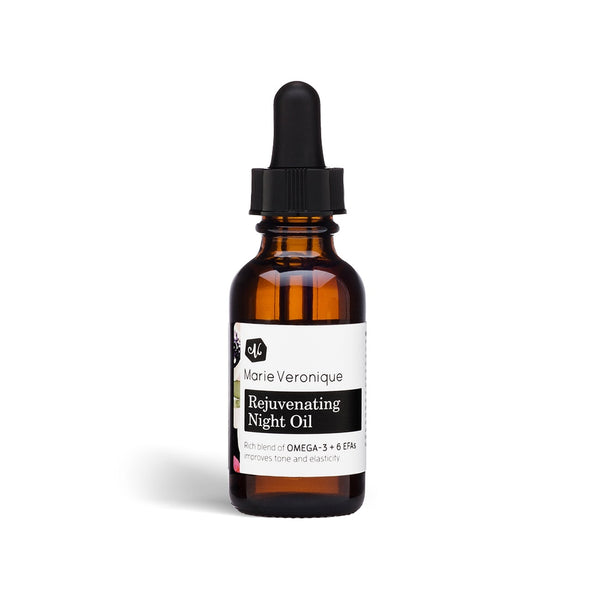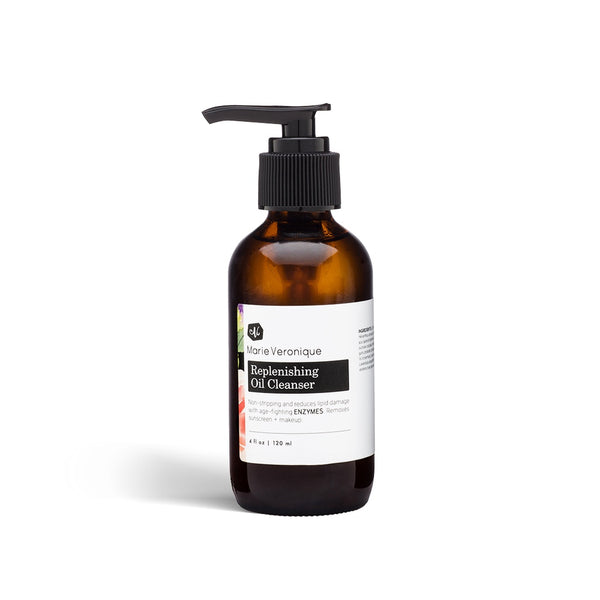What is your approach to skincare?
My approach to skincare is about helping people obtain and maintain strong, healthy skin. My foundation is based on the functionality of the body and the fact that I don’t think there is anything more interesting than understanding (or attempting to at least) the way the body works.
I follow the “make your own rules” approach to what I think works best and how I do my treatments is based on my experience of studying people and their skin. I take my foundation of science and mix it with the truths of what people actually experience. I rely heavily on having a very strong feedback loop with my clients. I pay attention to clinical trials and research but am not limited to facts and I tend to ignore claims. I study every aspect of my clients, chart their details, compare them all and look for patterns. There is a lot of note taking, watching, PATIENCE and adjusting involved and it’s these steps that make my practice stronger and how I learn. It’s basically like I have 100 clinical trials going at once! I try to keep my blinders on to the rest of the industry and focus on what feels genuinely right to me, that way I know I am always doing MY best, not trying to be someone else. I believe that if you have a strong foundation, be that science or art, you can then be creative and take chances and stray away from what has already been done, paint something crazy and abstract, or in my case come up with a new protocol or strategy in combatting an unwanted symptom (like when I had my client take swabs of her sister’s skin and rub them on her face. It worked!). I see a lot of gaps in the way skincare has been approached in the past, especially for conditions like acne, rosacea and eczema. I want to shift things in a way that benefits everyone and creates long lasting change and health.
Your approach utilizes many different techniques to optimize the most beautiful skin, can you please share these techniques and why they benefit the skin.
Going back to the word, functionality. What I really try and teach my clients is how to tap into that themselves. What is the skin already really good at doing? What does it need to do those things? And what does it want to be happy? Then we problem solve and create a plan to compensate for any losses (environmental, dietary, lifestyle). I don’t have much interest in getting in the way of the body but more so in supporting it to be a highly efficient and brilliant machine. In my experience, I find that simpler is better. Stay out of the way of the body. Don’t overload the system and don’t fall under the spell of “claims”.

We know that massage is fundamental to your practice, can you explain the benefits of adding this practice to your daily routine?
I love massage, most importantly because it feels super good. The facial muscles are strong and used all day long, even while we sleep. I love releasing them, moving them, stimulating more blood flow and feeling the way the temperature shifts in the face. I think you absolutely can impact the rest of the body through touching the face. There is this insanely good feeling that comes when people touch your face, it’s vulnerable, and deeply relaxing (if you let it be). I am all about strong circulation in general, which provides increased nutrient supply, so I believe that stimulating circulation to the face is a very positive thing. I also get to know my client’s skin better by spending a lot of time touching it and watching it. How it reacts, responds, moves. For me I do it to make my clients feel good, but also to learn.
How do you think food impacts skin health?
When you really break it down I would say it indirectly impacts skin health. But that indirect impact is super important. One’s diet influences your endocrine function which is a huge control center for the skin. Also, when you think about nutrient delivery to the dermal layer via the blood flow, those micronutrients come from food, especially the key ones like Omegas, which we cannot synthesize without eating them. I think a lot about how we can shift the quality of oil produced in our sebaceous glands, from pro inflammatory to anti inflammatory and the very complex sequence of events that entails, and I think you can shift it via diet, absolutely. I’ve seen it happen! Also, foods can trigger inflammation in the body, which definitely shows up in most people’s skin. I don’t think it’s about eating perfectly or having restricted diets, though, it’s all so individual. It’s not about a perfect “skin diet” or eating a million “superfoods” in my mind, it’s again about functionality. What does the skin need to be strong and healthy and what foods provide for that? What foods might be irritating your body making it inefficient and disturbing your hormonal balance? Let’s cut those out. What’s going on at skin surface? What does it feel like? Greasy or oily or dry? Let’s tweak your diet to optimize that. I think if we stop trying to label and define our eating patterns and just focus on whole foods and what actually makes us feel good and strong the skin will follow suit. That all being said, I do believe that you must look at the skin as its own organ independent of the food we eat at the same time. If someone has fully inflamed acne all over their face, changing their diet may not be effective, or at least for a long time. If it’s reached a state of bacterial overgrowth, it’s a totally different thing. The skin has its own ecosystem and there are a lot of complex things happening within it, that we also have to pay attention to. I think of it as a hand holding approach. Pay attention to the internal body, support it, but also give the skin what it needs, topically.
We know you studied in Paris, can you share the French approach to skincare and let us know if there are differences between their approach and the American approach?
(I am going to generalize here. Of course there are outliers! And this does not translate to 100% of the people but this is what I think based on my own experience working with people on a daily basis.)
When I worked with Joelle Ciocco in Paris I saw so many different types of skin from all over the world. The conclusion I came to of how skin varied from place to place, is that it is all based on what people have created as their definition of beauty; which then is reflected in their approach to skin care.
So for instance, in America, I think it is fair to say that the (mainstream) image of beauty is focused on being “flawless”, tiny pores, no discoloration, no pigmentation marks, no redness, and the kicker, absolutely no lines, not even just wrinkles, but no expression lines! It’s like you cannot look like you’ve had a nice childhood in the sun, or laughed a lot, or maybe are super intellectual and have lines from thinking deeply. If you look around at ads, social media, films, it is very clear that is what America thinks is most beautiful. How this then translates to the skin care industry is pretty intense. People have become addicted to stripping, peeling, sterilizing, needling, scraping, stinging, scrubbing, injecting, paralyzing. Whereas in Paris (and largely most of Europe) I think they have a different picture of what is beautiful, which is just more accepting and relaxed. I never really saw a French woman who wanted microderm or used mandelic and glycolic acids daily, Joelle didn’t even have an exfoliant at her center. Yes, they still care and have routines which could require several products, but in a more pleasurable way: beautiful scents, textures, luxurious creams. Wanting to feel good was a major motivation for them. When I was at ISIPCA studying cosmetic chemistry, we would get marketing briefs from major houses like L’oreal and it was really clear that there was a difference in priority in comparison to what we see being sold in the states. We were tasked to formulate soothing, hydrating, etc, not as much firming, peeling, etc. There, it didn’t seem like the women were looking to be ageless or perfect, just well taken care of, sophisticated and chic.
Skincare seems to light you up, what else does?
The ocean. I have this need to be completely submerged in water on a daily basis. Not sure why, but I get very happy when I am by the water (salty water, that is). I also love movement, dancing, walking, swimming, physical movement makes me really happy and feel my best. Travel, of course always puts things into perspective and excites me.
What does an ideal day look like to you?
Well, an ideal day in the Bay Area would be a sunny one as I really prefer the heat. I would wake up early and hang with my husband, Austin and our Belgian Malinois, Loup. Have some coffee in bed or in the yard, and just wake up over a long period of time. Then do something with movement, maybe a hike or a swim, or maybe the day is a long wandering day where we just continuously move from thing to thing. I like the idea of it being slow and more or less uneventful. I might want to do a little work, but not too much and not on the computer, but in person. Working makes me feel really good. When I am in a funk and I get to see a client I feel completely reset afterwards, it totally grounds me. I feel really lucky to be able to say that. Then the afternoon/evening would be spent outside in the yard, maybe just watching Austin garden (I am better at overseeing than actually doing anything with plants). To end the day would definitely be a dinner party with friends. I’m married to a chef and grew up in a family that cooked mostly every single night, so food is really important to me. I love to cook, eat, entertain and have beautiful wine. When there are lots of people in my kitchen I feel really good. Then it would be a shower and in bed by like 10/10:30 because I really love going to bed early. And that’s it, just a simple day.
People often ask us “what is the one thing I can do now to improve my skin” and although we don’t believe there is only “one” thing to do to benefit your health, do you feel there are some practices that people could implement to improve the state of their skin?
I think the one thing you can do to improve your skin is focus on creating a strong barrier layer. The “barrier layer” is what protects us from trans-epidermal water loss (dehydration), balances the moisture levels of the skin, creates an ecosystem for bacterial harmony, and minimizes inflammation, and keeps the immune function of the skin normalized. By looking at how barrier function actually works to regulate moisture levels in the skin, we can provide the skin everything it needs, ceramides, amino acids, lipids to keep it hydrated. The goal is to supply the missing ingredients to maintain proper barrier function, also supply the skin cells with ingredients that comprise natural moisturizing factor (NMF) so that the cells hold their spherical shape, thus maintaining their integrity; providing the skin with ingredients it needs to make it a self-regulating hydration system, which is eventually the goal. Again, just go back to functionality and follow that.
You just launched a collaboration with Marie Veronique of three items that you think would be incredibly beneficial to your private clients. Can you share what those are and why you developed them. Can you also share what other products are on the horizon?
Yes, we made three serums: soothing serum, barrier restore and and intensive repair serum. These are all based on what I was seeing with clients. We made them in a crisis point when I had a handful of clients with dermatitis, cystic acne and eczema all at once and I needed something fast. We brainstormed, Marie made a few samples and I started handing them out. The results came back quickly with positive changes so we kept adjusting and tweaking until we felt they were ready. I had most all my clients on them for months before we released them to actually see how they performed. They are focused on that barrier layer I described above and how to preserve and reinforce the skin system. We call them “biomimetic” and believe they are just filling in the blanks and helping the skin recover from many potential disturbances. I am super happy with how they turned out and love that my clients enjoy using them too.
Right now we are finishing up 4 more products to complete the line. A cleanser, toner, “moisturizer”, and a mask. I am super excited about these too. All are microbiome “friendly”, fragrance free and for everyone, from “normal” to intolerant skin, made from the healthiest group of ingredients we could find while still providing really good results. I used them a lot in my last week of treatments while in NY and was loving what I saw as the results. They will launch in the fall. The goal of this line is to sort of bridge the gap between the sides of the industry, these products are great for the people that want to do lasers, peels, etc and also for those that want to be 100% clean and natural. No judgment whatever side you’re on, but we just want to support people and their skin, eliminating all the unwanted symptoms by taking a different approach.
What are your 5 favorite products from CAP?
So many good things! When I am there working I end up having this rolling tab because on a daily basis there is something I want to buy.
1. The Marine Ampules have been a long time favorite for sure. There is something ritualistic about them, and I love the salty taste.
2 .My all time favorite product for lips (aside from a lipstick) is the Butter Lip Balm. It smells like creamy cardamom and is kinda perfect.
3. I got to try the new CAP Genmaicha this last trip and I loved it! The Matcha is a favorite too, I think it’s great you guys are forming your own little curated line.
4. I aways tend to get some sort of bath product, I love the CAP Love Bath and the Mustard Bath is great too.
5. Good Body Products Arnica and Comfrey Salve. I can get pretty sore after working a lot and I love this stuff and think it’s actually really effective in soothing muscles. I love to rub in on my neck.

